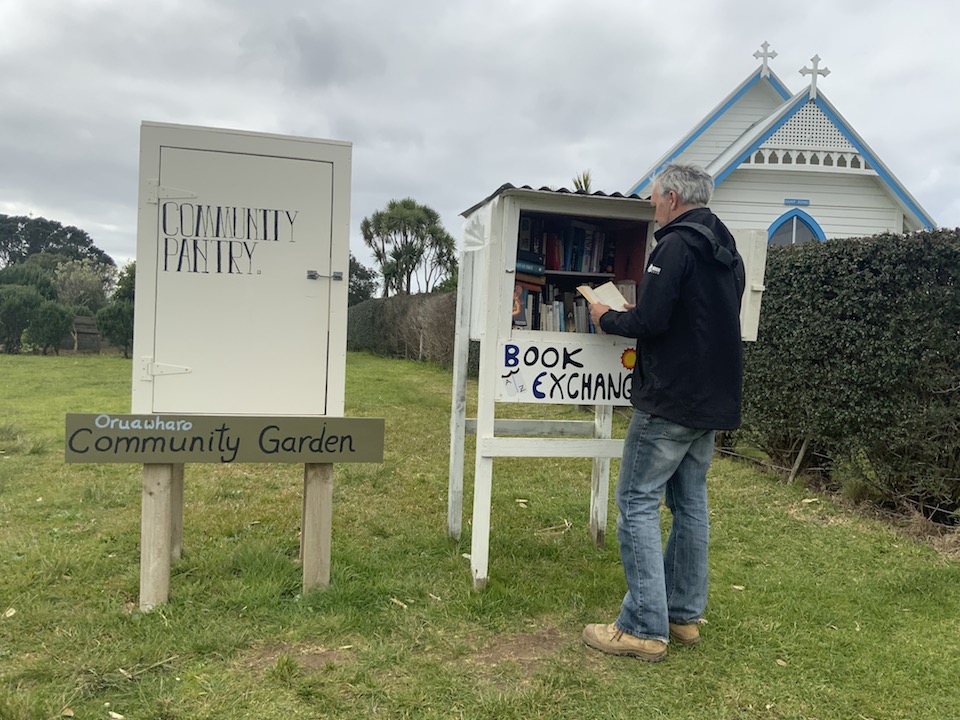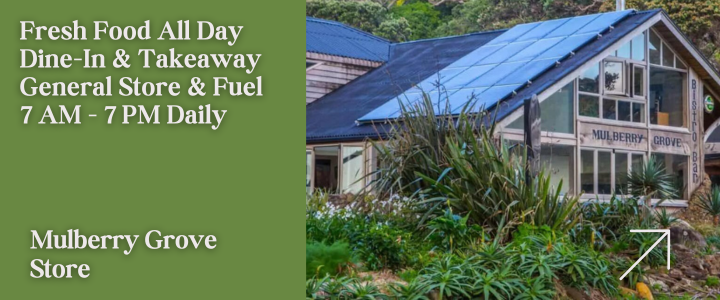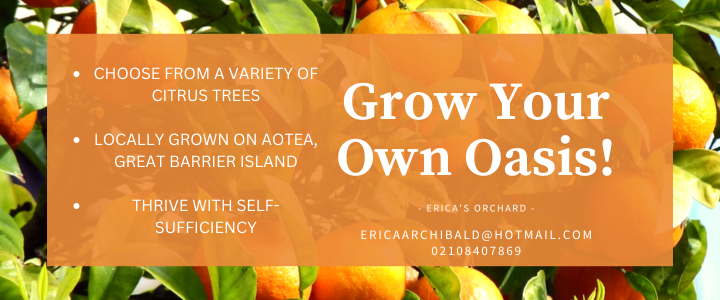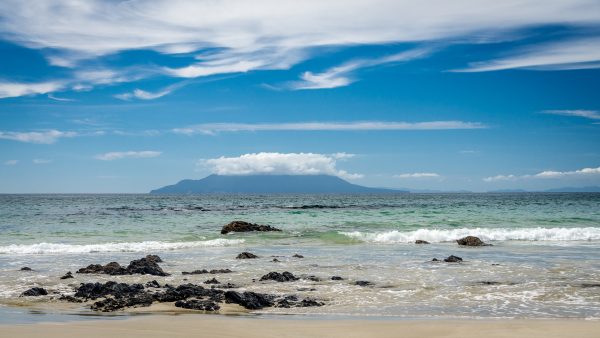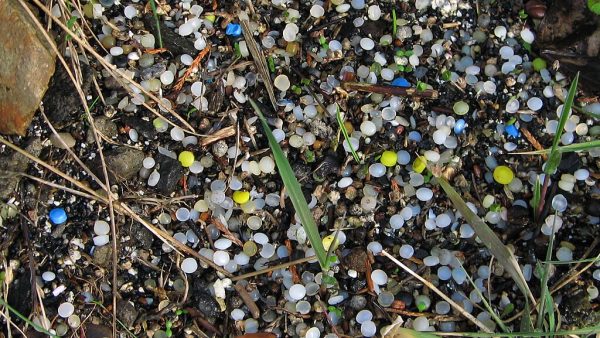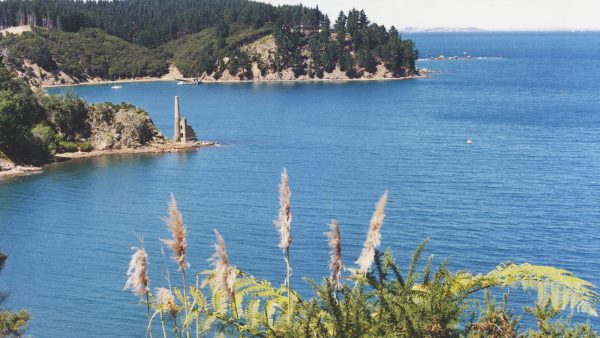Above: The Book Exchange and Community Pantry at Medlands. Photo / Anamata Resource Recovery
We asked, you answered.
Here are some insights from our island’s Waste Warriors on Reducing, Reusing, and Recycling.
Reducing waste is a journey, and you don’t have to tackle everything at once.
Making small changes will preserve our island paradise for generations to come.
No plastic bottles
- Invest in a quality water filter and reusable water bottles to avoid single-use plastic bottles.
- Not only will you help reduce plastic waste, but you’ll also save money in the long run.
- Get a Sodastream for soft drinks if you really need your Fanta or Coke fix.
- If you’re a visitor, take single-use plastics with you. Better still, don’t bring them in the first place.
Start your own vegetable garden
- Utilize our epic outdoor space or get the kids to create a container garden to grow vegetables.
- Choose easy-to-grow crops like tomatoes, lettuce, herbs, and peppers. Root vegetables will grow well in most places, but if you’re struggling, try some raised beds.
- Gardening provides fresh produce, reduces food miles and packaging and promotes self-sufficiency.
- Donate your leftovers to the community pantries and compost bins at Medlands Community Gardens, Mulberry Grove School, Okiwi School, Mabey Road and Anamata
Plant fruit trees
- Consider planting fruit trees.
- Some of the fruits that grow best on Aotea, Great Barrier Island include citrus fruits like lemons, oranges, and mandarins, as well as feijoas, tamarillos, passionfruit, guavas, and avocados.
- Despite the challenge of limited topsoil, Aotea offers the opportunity to grow a variety of fruits with some extra care and attention. Consider mulching, composting, and using raised beds, to maximize the growth potential of fruits on the island.
- Fruit trees offer a sustainable source of nutritious food and can enhance your garden’s biodiversity.
Exchange produce with neighbours
- Establish a community sharing program in your bay where you all plan what you’re growing.
- Organize a swap meet to trade surplus fruits and vegetables, alternatively you could take your kai to the Makers and Growers market.
- Sharing and exchanging produce fosters community connections and reduces food waste, if you’re a bach owner, or you don’t need something, leave it for others at one of the community kitchens.
- Also, don’t be a dick and judge others for needing a kai just because you don’t. Normalise sharing!
Support local
- Okiwi Passion, renowned for its high-quality organic produce is an excellent choice for fresh, local fruits grown on Great Barrier Island’s fertile soils.
- Buying locally not only reduces carbon emissions from transportation but also showcases the unique flavors nurtured by the island’s diverse soil types.
- By choosing Okiwi Passion and other locally grown produce, you contribute to the local economy and the preservation of the island’s agricultural heritage and support sustainable farming practices.
Cloth produce bags
- Use cloth produce bags instead of flimsy plastic bags when shopping for fruits and vegetables.
- These reusable bags protect your purchases and help reduce plastic waste.
- Cloth produce bags are also great for transporting bulk goods.
Avoid produce wrapped in plastic
- If you have to get it off-island, opt for loose produce instead of items unnecessarily wrapped in plastic.
- Supermarkets can shrink-wrap produce that already has natural biodegradable packaging.
- By choosing unwrapped options, you can minimize plastic waste, even if it comes on the boat or Barrier Air, if you buy it loose, it’ll probably come in paper nowadays.
Recycle, recycle, recycle
- Despite efforts to minimize waste, recycling can still be necessary. Ensure proper recycling by following the council guidelines.
- Ask yourself ‘could this go to Anamata’?
Ditch the tea bags
- Many tea bags contain microplastics harmful to the environment.
- Opt for loose-leaf tea or use in-mug strainers and reusable cloth tea bags.
- Making your own custom tea blends can be both sustainable and fun.
Green up your closet
- Purchase from sustainable clothing brands or shop at Anamata, or the St Johns Opp Shop. Thrift shops off-island can sometimes deliver.
- Buying secondhand reduces waste and supports a circular economy.
- Donate clothing you no longer need to St John to extend its lifespan too.
Plan your meals
- Meal planning helps reduce food waste by ensuring everything you purchase is used.
- It saves time and money by streamlining grocery orders.
- Consider adopting a more sustainable diet alongside meal planning.
Give veggies a chance
- Choose local, humanely raised meat if you’re not ready to go vegan.
- Experiment with plant-based meals, such as adopting Meatless Monday.
- Discover the satisfaction and deliciousness of plant-based alternatives.
Compost your food scraps
- Start your own compost heap, it’ll fix crappy topsoil in your garden, failing that, there’s the community compost at Medlands Community Gardens beside the St John Church, and at Mulberry Grove School and Anamata.
- By composting, you reduce methane production and greenhouse gas emissions btw.
Replace plastic wrap with beeswax wrap
- Beeswax wrap is an eco-friendly alternative to plastic wrap.
- It’s reusable, reduces plastic waste, and comes in various shapes and sizes.
- Beeswax wrap can also be a thoughtful and sustainable gift option.
Green up your period
- Switch to reusable menstrual products such as menstrual cups, period underwear, or reusable cotton pads.
- By avoiding disposable menstrual products, you reduce landfill waste and save money.
- Embrace sustainable options and support your well-being.
Give ugly veggies and dented cans a chance
- Shop for imperfect produce to reduce food waste for our on-island retailers, and support our hardworking farmers.
Reuse old clothes
- Repurpose old clothes into cloth rags for cleaning or turn them into reusable bags.
- Extend the life of your clothing and reduce paper towel usage.
Replace soap bottles with bars
- Switch to shampoo, conditioner, and soap bars to reduce plastic waste.
- Bar products are concentrated and last longer, saving money in the long run.
- Consider making your own homemade beauty products for a personalized touch, or get something on-island from Aotea cosmetics.
Make your own cleaning products
- Conventional cleaning products often contain harmful chemicals.
- Create eco-friendly cleaning solutions using baking soda, lemon juice, and vinegar.
- Homemade cleaning products are better for your health, the environment, and your septic.
Recycle spare tires and old cars, and check air filters
- Consider upcycling old tires into creative projects like tire swings or dog beds.
- Leaving an old car to rust and break down on the land can release a variety of harmful chemicals and heavy metals. These include lead, mercury, cadmium, chromium, arsenic, oil, fuel, coolant, and more.
- We have dusty roads and dirty filters can reduce fuel economy by up to 10%.
Use digital instead of print
- Switch to digital documents, opt for paperless bills, and request digital receipts.
Avoid single-use plastics
- Replace plastic cutlery, straws, plates, and cups with reusable alternatives, especially if you’re coming to camp with us.
- Carry reusable cutlery, stainless steel straws, and containers while on the go.
- By avoiding single-use plastics, you help reduce island waste and protect our moana.
Bulk grains
- Consider buying staples in bulk and storing them in leftover containers, mason jars or cloth bags.
- By purchasing in bulk, you can control the amount, and reduce packaging waste.
Reducing waste is a journey, folks, especially here on our motu.
By taking small steps towards sustainability, we can protect the natural beauty that surrounds us.
Doing our part one eco-friendly choice at a time will preserve the magic of our island paradise for generations to come.


